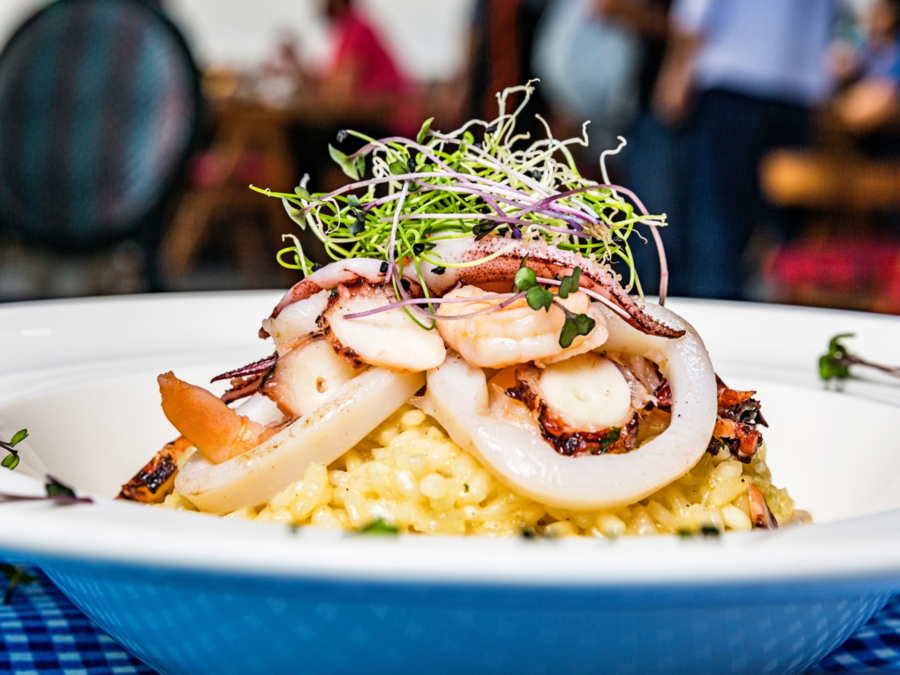
What does it actually mean to eat responsibly? There are a whole bunch of people are trying to answer that question. And along the way, they’re forming communities organized around the ultimate social adhesive: food. Eating with purpose, together.
As Nika Mavrody wrote in one of his features for Savoteur, “Those of us who are lucky enough to live in relative safety, security and prosperity have the privilege of being rather precious when it comes to nourishment. As my Soviet-born father used to say, whenever someone complained about a dish: “Starve yourself for a day and then try it again. You’ll love it!” With respect to this mentality, we consider ourselves equal-opportunity eaters. Food is great; we devour it with pleasure and zeal. But there’s a caveat: The vast abundance of edible stuff available to citizens of late capitalist nations leads to negative consequences vis-à-vis ethics, health and the environment. So to a certain extent, being precious about what you eat isn’t just a privilege, it’s also a responsibility”.
But what does it actually mean to eat responsibly? Well, it depends who you ask:
1. Eat unprocessed foods
Each step that is added between the start of your food and it eventually finding its way into your stomach is opportunity to lose nutrients and add waste. If you look a the packaging and cannot pronounce or identify half the ingredients on the label, put it back and find some thing else to eat. Your body will thank you!
2. Opt for Seasonal foods
Although we have removed themselves from the job of finding food, our bodies remember thousands of years of evolution when certain foods came at certain times of year. They still gear up for the seasonal harvest. Also getting seasonal food means that you are getting food that it is at its ideal ripeness and perfection. There is a reason that a tomatoes purchased in February are mealy and mushy… it is not the time for tomatoes.
3. Organic is best
We would all love to eat more organic food, but some times the cost is just a little too much for most food budgets. I understand that, but what a lot of people miss are the hidden costs to their bodies and their environment. The USDA guidelines stipulate that organic plants be raised without synthetic fertilizers and pesticides. For animals this means no hormones or antibiotics and that the animals have to be raised on feed that is certified as organic.
4. More Fruit and Veg
This should be a no brainer given the food pyramid that we learned in grade school, but most of us (I am guilty of this) do not even come close to eating our recommended daily allowance. We save our selves for steak and eclairs. Not only do we do damage to our bodies, but we are creating a greater drain on our natural resources.
* Photo featuring the famed Spanish chef Ferran Adrià, who owned the three-Michelin-star elBulli restaurant in Catalonia – from the cover of the 2014 Lavazza calendar.
FoodsCross is the brainchild of a small group of Greek friends who share the restless spirit of true pioneers and appreciate food as a need and a pleasure for body and soul. The people of FoodsCross invested in their very own curiosity and unwavering interest for real, tasty and healthy food.
OUR NUTRITIONIST LOVES QUESTIONS!
BECOME COMPANIONS ON THE FOODSCROSS JOURNEY AND STAY INFORMED ABOUT EVERYTHING CONCERNING THE CULTURE OF FOOD AND ITS WONDERS
CONTACT
FOODSCROSS NATURAL PRODUCTS
60th G. Marinou str.,
16777, Athens, Greece
T/F: +30 210 9600315
E: info@foodscross.com
FOODSCROSS
NATURAL PRODUCTS
